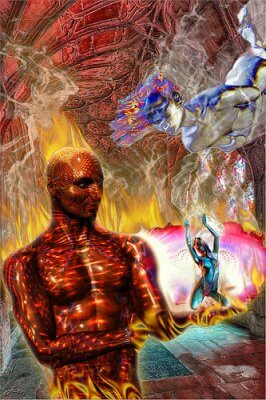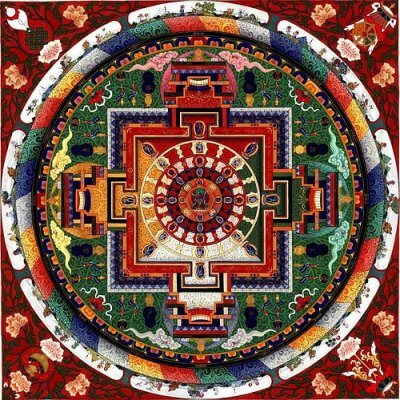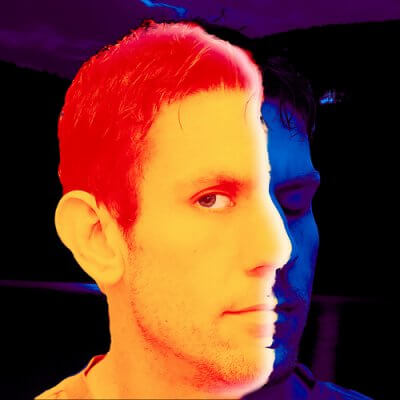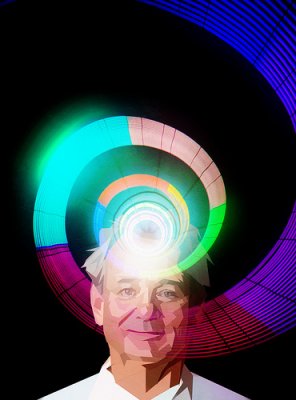What is Individuation? Carl Jung and the Journey of Self

By: new 1lluminati
by Andrea M. Darcy
It was Carl Jung himself who bought the word individuation to psychology. He began using the word to describe what he felt the central and most important concept in his view of human development.
What is individuation?
Individuation is our journey towards understanding ourselves. It involves becoming the most integrated, whole version of our unique self as possible. At its highest level, individuation is the art of personal transformation.
Individuation answers the question, who are you, beneath all of your social roles and responsibilities? If you took off the ‘masks’, or personas, that you hide behind? Who would you be if you faced up to all your hidden secrets and made peace with your darkest corners? And dared to be yourself no matter how different you are from others?
In some ways individuation happens whether we want it to or not. Life itself pushes us to grow up and learn more about who we are and what we are capable of.
But the process of individuation benefits most from approaching it like a quest. That is, if we consciously commit to know and understand ourselves, work on ourselves, and seek to embrace all that we are.
A brief history of individuation
We live in an era where we take for granted that we can learn and grow as individuals for all our our life times, right up to the day we die.

By: mimabahor
But the prevailing view in Jung’s time was that all psychological growth took place as children and adolescents. Jung’s colleague then competitor, for example, was Freud. Freud was focused on how childhood is the root of everything.
Jung came up with his then radical concept of individuation through personal experience. He never stopped working on himself, and he had quite a crisis in middle age where he faced up to many things within himself.
Near the end of this crisis Jung became interested in mandalas, ancient symbolic drawings that radiate from a centre point.
Jung realised that all paths in our psyche lead to a centre point of our unique Self. Individuation is taking the path towards this Self. But like a mandala, the path is rarely straight, but tends to leave us feeling we are going in circles.
What does the process of individuation involve?
Bringing the unconscious to the conscious.
The view of psychology at the time of Jung was that we have an unconscious mind where things are hidden. Jung differed from Freud in that he felt there was also a collective unconscious. Part of the journey of individuation is to bring elements of the collective and personal unconscious to light, so that we can better understand ourselves.
Of course nowadays we know there is no part of the brain delineated as ‘unconscious’ but that our brain is a complex series of selective networks. But the concept of facing repressed experiences and repressed emotions is still an important part of personal growth.
Facing up to our shadow.

By: David Goehring
Many of the things we repress or deny are the parts of ourselves we deem ‘bad’ or ‘unworthy’. This is what Jung coined the Shadow. When we find the courage to look at our Shadow we often find it holds gifts, and links us to our personal power.
Finding balance in our psyche.
Jung saw the next layer in the psyche after the shadow as the anima/animus, or masculine/feminine sides. In his era, it seemed to him that men must learn to embrace their ‘feminine’ side and women their ‘masculine’ side.
Of course times have changed, as have ideas of what these terms mean. So it can make more sense to think of finding a balance depending on what traits you find within that are over or underdeveloped. Do you need to be more active/accepting? Rational/intuitive?
Acceptance of self and other.
When facing our shadow and our unconscious mind the idea is to learn to accept and integrate all that we are. We essentially ‘crucify’ our ego, and by becoming more accepting of ourselves become more accepting of others.
Jung said, “Individuation is the one-ment with oneself and at the same time with humanity, since oneself is a part of humanity”.
Spirituality.
Jung really meant the term individuation to also embrace the spiritual experience of being human. In fact he connected the individuation process to Taoism and Zen Buddhism, as well as Christianity. Which makes sense, as many people discover by default a sense of spirituality on their journey of individuation.
How can we achieve individuation?

By: Surian Soosay
Nowadays we are spoiled for choice when it comes to self-development and learning to be our authentic self.
But Jung recommended things such as the following as a route to individuation:
Working with archetypes. Archetypes represent universally understood motifs and characters. We all have some dominant archetypes within, and learning to recognise and work with them leads to self-actualisation.
Dreamwork. Jung loved using dreams as the unconscious works with images. So for him, it was a necessary route to understanding and processing our unconscious mind.
Shadow work. Again, facing up to the parts of ourselves we deem unacceptable is necessary to achieve individuation.
Creative play. Jung pulled himself out of his midlife crisis by using creativity. He began, for example, to build model buildings like he did when a child. And he drew mandalas.
Imagination techniques. Jung would encourage clients to relax their minds and let words and images rise, writing down or drawing what came up.
Would you like to focus on the process of individuation?
You might want to try working with a Jungian therapist. A more modern type of therapy called transpersonal therapy is another option. It focuses on integrating psychology with spirituality, and is very much about the journey of personal transformation.
 Andrea M. Darcy is a health and wellbeing writer as well as mentor, trained in person-centred counselling and coaching. Although not a fan of who Jung was as a person, and how he treated women and children, she does love his body of work. Find her on Instagram @am_darcy
Andrea M. Darcy is a health and wellbeing writer as well as mentor, trained in person-centred counselling and coaching. Although not a fan of who Jung was as a person, and how he treated women and children, she does love his body of work. Find her on Instagram @am_darcy





This method of individuation is thousands of years old. It is part of the enlightenment process.
Separation from “the crowd” is how we become our real selves, rather than that which the crowd wants us to be.
Individuation is a process of psychological integration. “In general, it is the process by which individual beings are formed and differentiated [from other human beings]; in particular, “it is the development of the psychological individual as a being distinct from the general, collective psychology.”
There is a real and seemingly never-ending tension between psychological individuation versus collectivism. As we age we tend to look for a soft place to fall and that seems to lead us away from herd mentality into personal deeper inner thoughts. But before heading off into the desert to contemplate our navel we can promote individuation for ourselves and others while still continuing societal membership. When an argument is obviously individual vs society we can lean towards the side where the individual retains his or her right to make a choice.
Individuation allows us to be part of the whole, the group, and even our families while still being able to maintain our individuality, our own set of values, beliefs and sense of integrity. It is our absence from the collective that we are taught more about our own presence.
Thank you Andrei, nicely said!
This is mind opening for me…Thank you!